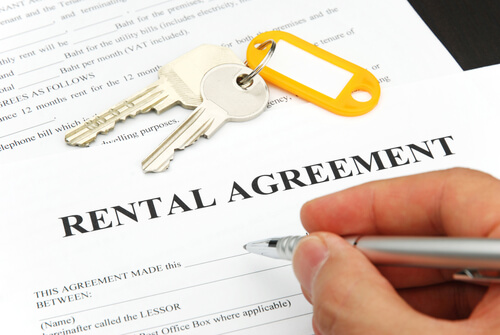The Importance of a Solid Apartment Rental Lease Agreement

An apartment rental lease agreement is one of the most important documents for landlords and tenants. It outlines the rights and responsibilities of both parties and serves as the legal contract for the rental arrangement.
Having a comprehensive, clearly written lease agreement prevents misunderstandings and helps ensure a smooth landlord-tenant relationship.
However, drafting a rental lease agreement from scratch can be daunting, especially for new and inexperienced apartment managers. There are many important provisions to include and legal requirements to follow. This is where partnering with a Dallas property management company can be invaluable.
Apartment Rental Lease Agreements, and How Property Managers Can Help
Property managers are experts in rental housing and stay up-to-date on all federal, state, and local landlord-tenant laws. Our team uses its knowledge and experience to create tailored apartment lease agreements that protect the landlord’s interests and follow all legal guidelines.
Utilizing State-Specific Lease Forms
Most states have statutes dictating what information must be included in an apartment lease. Texas property managers utilize state-specific lease templates that contain all the required clauses and disclosures to comply with the law.
This ensures no critical information is missing from the agreement. The information we include in our apartment lease forms in Texas includes repair and maintenance policies, required notice timeframes before terminating the lease, and more!
Contact our rental lease agreement team by calling (817)640-2064 to learn more about the lease forms we utilize for apartment complexes across Dallas.
Customizing the Lease
While state law establishes baseline requirements, there is room for customization to fit each apartment complex.
We can tailor your lease terms to the specific rental unit and the preferences. This can include:
- Details about the property (e.g., address, unit number, square footage, amenities, etc.)
- Rent amount and due date
- Security deposit and pet deposit, if applicable
- Who pays which utilities
- Whether subletting is allowed
- Any other rental rules and policies
The lease can address the unique aspects of your ideal landlord and tenant relationship. We’ll delve into more of what your lease details should include, later.
Understanding Local Rental Rules and Regulations
Landlord-tenant laws can vary significantly between states. But even within a state, local municipalities often have their own ordinances.
Our property managers based in Arlington, Texas are experts in the local rental market and incorporate any applicable municipal regulations into apartment leases. Our specialized knowledge prevents any violations of local law and ensures your next rental starts off smoothly.
Key Lease Sections to Include
While each lease can look different, most contain some universal sections. Having property managers ensure these key areas are covered protects landlords.
Information on All Parties
The lease should identify landlord name and contact information, the name of every adult tenant occupying the unit, and critical unit details like the address, unit number, and square footage.
Getting this basic information in writing prevents any questions about who the lease involves and what property it pertains to.
Lease Term Duration
The dates when the lease begins and ends should be explicitly stated. The most common residential agreement is a one-year term. However, landlords can opt for month-to-month or a different fixed time frame. Clarifying dates in the document itself avoids confusion.
Amount Due for Rent and Deposits
The lease must identify total monthly rent amount, the due date the rent is expected each month, late fees imposed if rent is overdue, required security and pet deposits.
Specifying these details in the signed lease provides documentation if disputes ever arise.
Usage of Premises
This section outlines the permitted use of the unit and common areas. It typically specifies that the complex is for residential purposes only. It also can ban certain high-risk activities like operating a business, storing hazardous materials, and engaging in illegal activities.
Setting usage expectations prohibits tenants from inappropriate property uses that could potentially impact safety or legality.
Maintenance Responsibilities
A key area to outline in detail is which party is responsible for various types of repairs and maintenance,
Generally as a landlord, you’re responsible for maintaining and repairing structure and systems, like the roof, plumbing, HVAC
Tenants are responsible for general cleanliness, smoke detector batteries, light bulbs, etc.
Clarifying obligations allows for quick resolution of any issues that may arise.
Craft Your Apartment Lease Agreement with Classic Property Management
Carefully constructed rental lease agreements that accurately represent the unique arrangements between landlord and tenant are critical.
This is where our property managers excel, offering valuable assistance for landlords of residential rentals.
At Classic Property Management our expertise in lease drafting results in agreements that comply with the law, reflect your ideal rental terms and help foster positive tenant relationships.
Ready to get drafting? Contact us today to learn more about our services.


